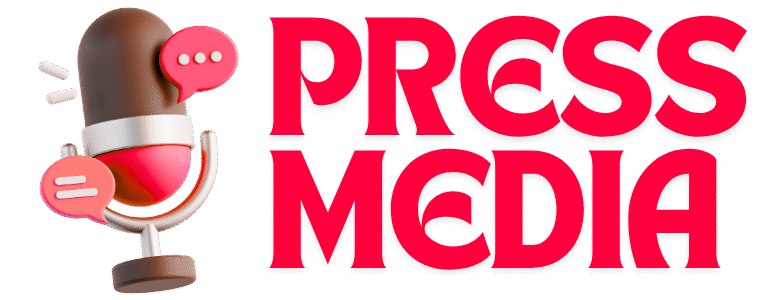Forged in Fire: Leadership Lessons from the Founders Who Built Giants:
The journey of a founder is a crucible. It demands vision, resilience, and an almost irrational belief in an idea when no one else can see it. While their products and companies often dominate headlines, the leadership lessons embedded in their stories are invaluable treasures for anyone aspiring to lead, innovate, or build something meaningful. Here are key principles distilled from the successes (and sometimes failures) of iconic founders:
-
Vision in the North Star, But Execution is the Engine:
-
Lesson: A compelling vision attracts talent, investors, and early adopters. Think Steve Jobs envisioning a computer in every home, or Elon Musk dreaming of multiplanetary life. However, vision without relentless execution is just a dream.
-
Action: Clearly articulate your “why,” but obsess over the “how.” Break down the audacious vision into tangible, achievable milestones. Foster a culture where disciplined execution is celebrated. As LinkedIn co-founder Reid Hoffman famously said, “If you are not embarrassed by the first version of your product, you’ve launched too late.” Iterate, learn, ship.
-
-
Relentless Customer Obsession (Not Just Focus):
-
Lesson: Truly successful founders don’t just think about customers; they live with them. Brian Chesky (Airbnb) famously stayed in Airbnb listings worldwide to understand the user experience firsthand. Jeff Bezos (Amazon) institutionalized the “empty chair” representing the customer in meetings.
-
Action: Go beyond market research. Talk to customers constantly. Use your product as they would. Let customer feedback, especially negative feedback, drive product development and strategy. Build deep empathy, not just data points.
-
-
Build the Right Team & Culture Intentionally:
-
Lesson: Founders quickly learn they can’t do it alone. Hiring people smarter than you in their domains is crucial. But equally important is fostering a culture that aligns with the vision. Sheryl Sandberg’s impact on Facebook’s operational maturity is legendary, while Satya Nadella transformed Microsoft’s culture from “know-it-all” to “learn-it-all.”
-
Action: Hire for cultural fit and skills. Define core values early and live by them. Empower your team, delegate effectively, and create an environment where psychological safety allows for risk-taking and learning from failure. Protect your culture fiercely as you scale.
-
-
Embrace the Pivot & Cultivate Resilience:
-
Lesson: Rigidity kills startups. Founders like Stewart Butterfield pivoted from a failed game (Glitch) to create Slack. Resilience in the face of constant setbacks, rejection, and near-death experiences is non-negotiable. Sara Blakely (Spanx) faced countless rejections before her breakthrough.
-
Action: Foster adaptability. Listen to the market and be willing to change course without abandoning your core mission. Develop mental toughness. View failures as learning opportunities, not endpoints. Celebrate the ability to bounce back.
-
-
Radical Transparency & Clear Communication:
-
Lesson: In the chaos of building a company, clear communication is oxygen. Founders like Ben Horowitz (a16z) advocate for radical transparency, even when delivering hard truths. Elon Musk’s infamous “extremely hardcore” email to Twitter staff was brutal, but undeniably clear about expectations.
-
Action: Over-communicate the vision, strategy, challenges, and wins. Be honest, even when it’s uncomfortable. Create multiple channels for open dialogue within the team. Ensure everyone understands how their work contributes to the bigger picture.
-
-
Lead by Example with Unwavering Standards:
-
Lesson: Founders set the tone. If they demand excellence but cut corners, the culture erodes. Steve Jobs’ legendary attention to detail (down to circuit board aesthetics customers never saw) permeated Apple. Founders must embody the work ethic, passion, and integrity they expect.
-
Action: Roll up your sleeves. Work harder than anyone else, especially in the early days. Hold yourself to the highest standards of ethics and performance. Your actions speak infinitely louder than your memos.
-
-
Decisiveness in the Face of Ambiguity:
-
Lesson: Founders operate with incomplete information daily. Paralysis by analysis is a killer. Successful founders develop the muscle for making tough calls quickly with the best available data, knowing they might be wrong.
-
Action: Gather input, but don’t seek consensus indefinitely. Define decision-making frameworks. Be prepared to make the call, own the outcome (good or bad), and adapt swiftly if needed. Speed often trumps perfection in the startup world.
-
-
Embrace the Loneliness & Seek Counsel:
-
Lesson: The burden of ultimate responsibility rests solely on the founder’s shoulders. This can be isolating. Yet, the wisest founders recognize they don’t have all the answers.
-
Action: Build a trusted circle of mentors, advisors, or a peer founder group. Actively seek diverse perspectives. Have a safe space to voice doubts and fears without undermining confidence within the team. Vulnerability, when managed appropriately, is strength.
-
-
Learn Publicly and Constantly:
-
Lesson: The most successful founders are insatiable learners. Bill Gates is famous for his “think weeks.” Mark Zuckerberg sets public learning challenges. The market, technology, and competition never stand still.
-
Action: Dedicate time to reading, exploring new fields, talking to experts outside your bubble. Encourage continuous learning within your team. Foster intellectual curiosity. Admit what you don’t know.
-
The Founder’s Legacy: Beyond the Exit
The true mark of a founder’s leadership isn’t just the valuation at IPO or the acquisition price. It’s the enduring company they built, the culture they instilled, the problems they solved, and the people they empowered and developed along the way. These lessons – forged in the unpredictable fires of creation – offer timeless guidance for any leader navigating complexity, driving change, and aspiring to build something that lasts.
Inspired by: Steve Jobs (Apple), Elon Musk (Tesla, SpaceX), Jeff Bezos (Amazon), Sara Blakely (Spanx), Brian Chesky (Airbnb), Sheryl Sandberg (Facebook/Meta), Satya Nadella (Microsoft), Ben Horowitz (a16z, Loudcloud/Opsware), Stewart Butterfield (Flickr, Slack), Arlan Hamilton (Backstage Capital)etc.

